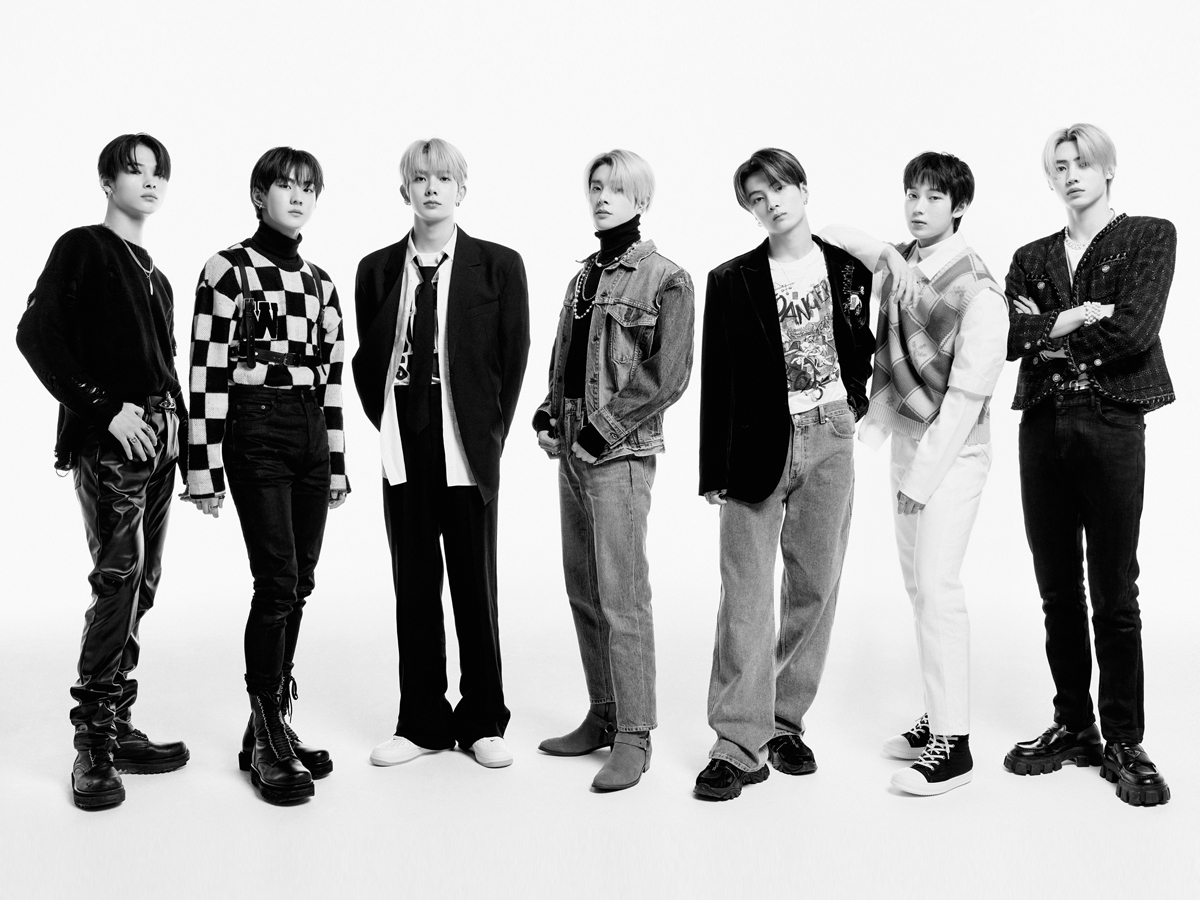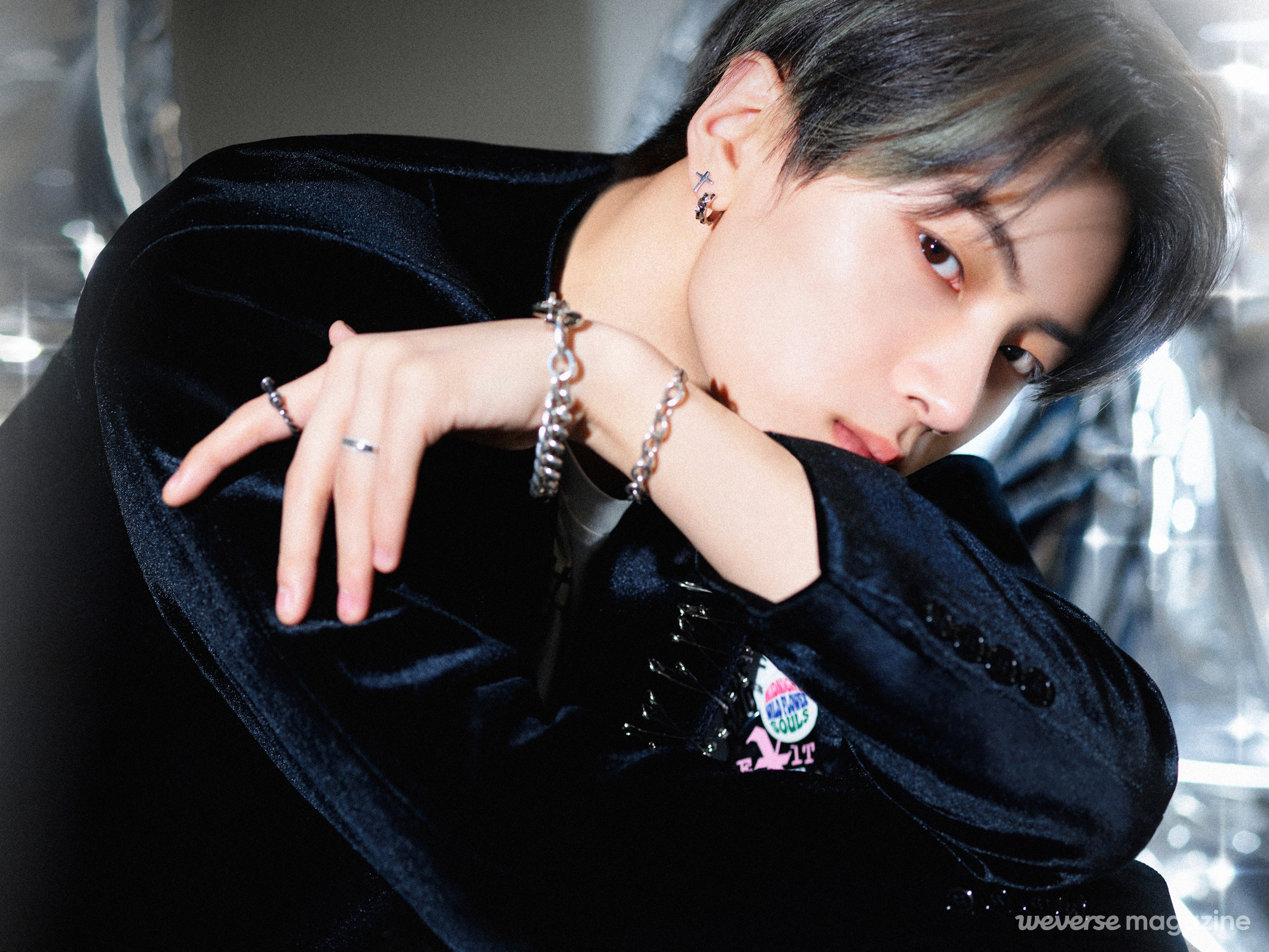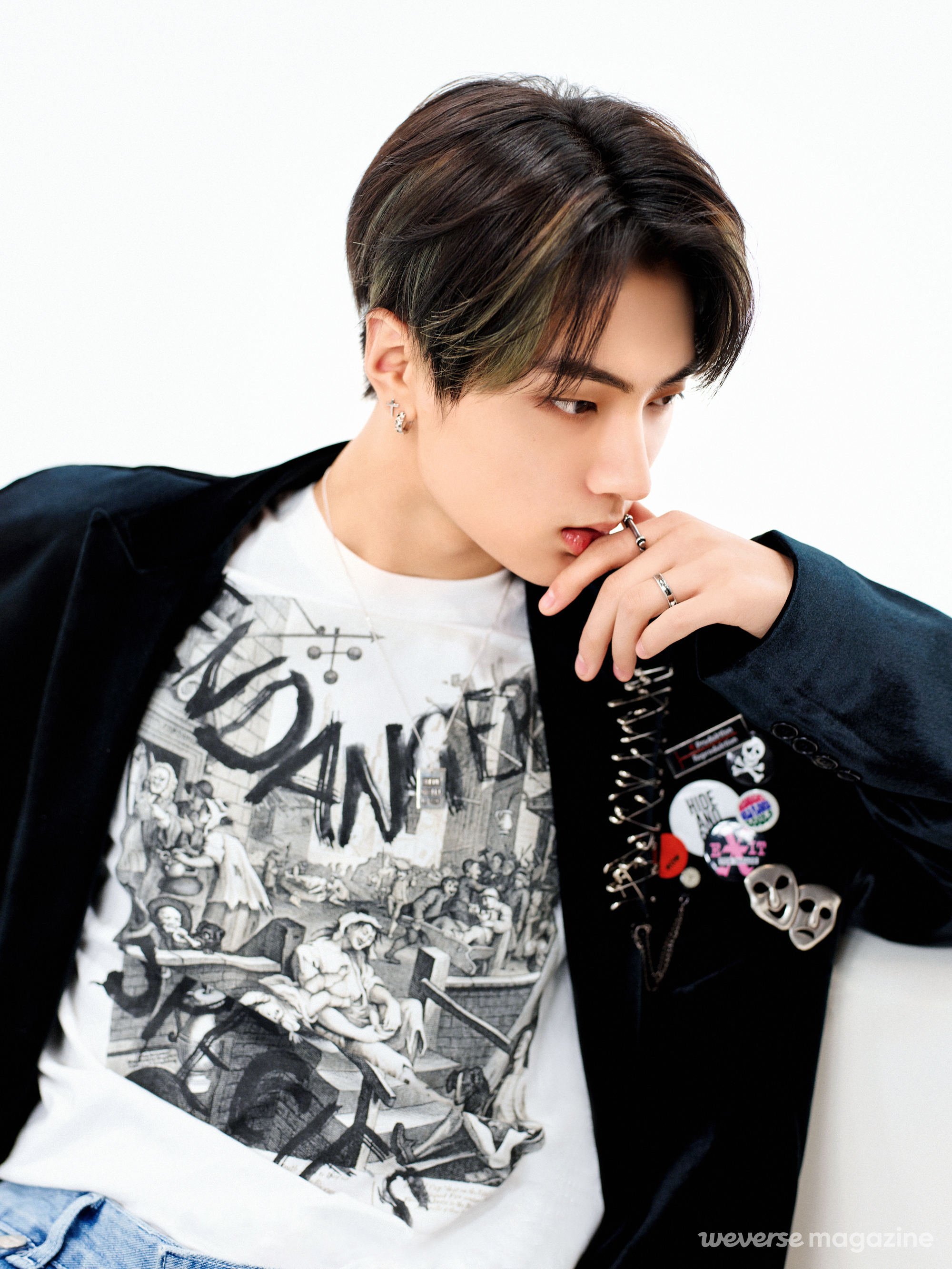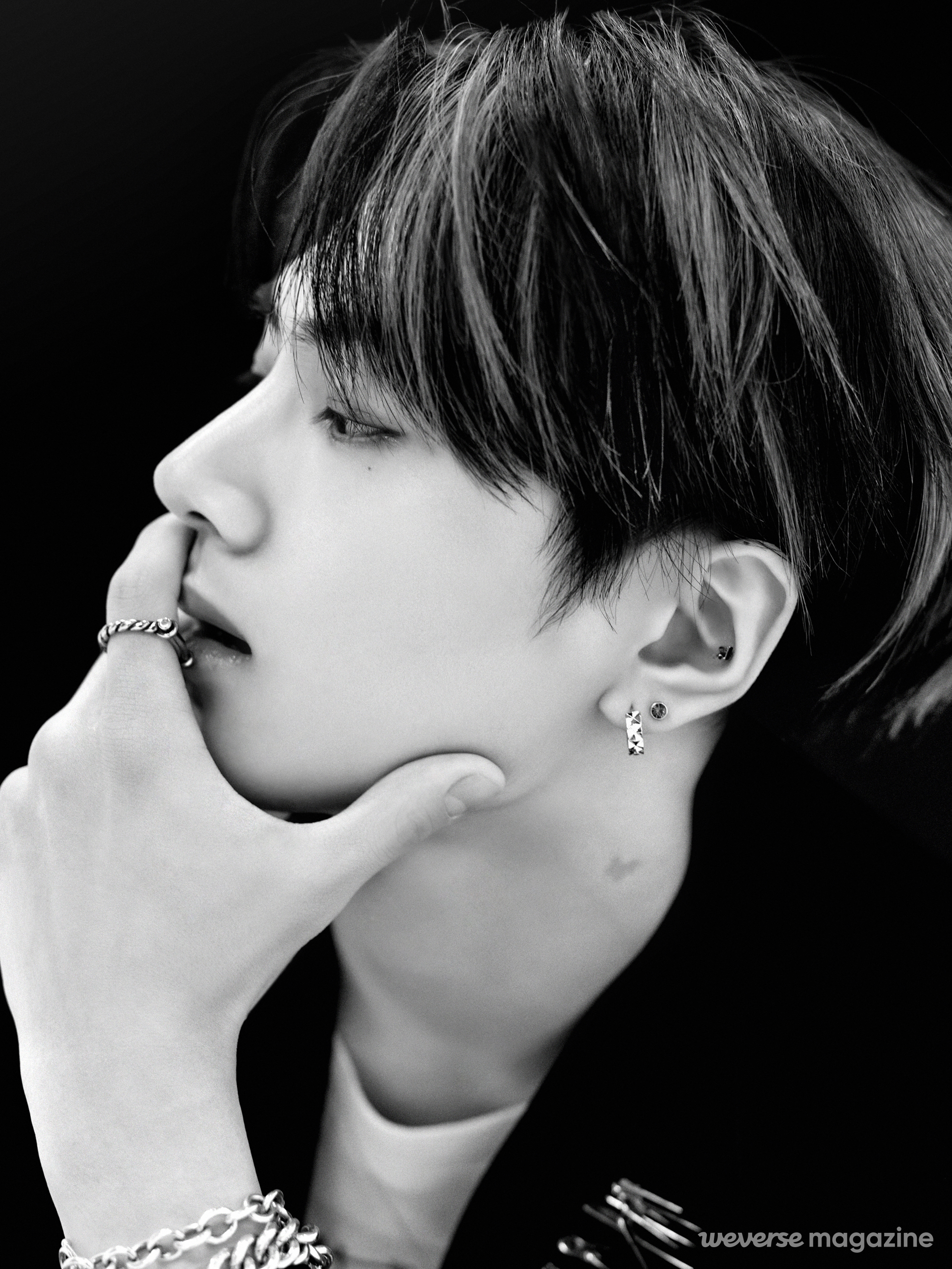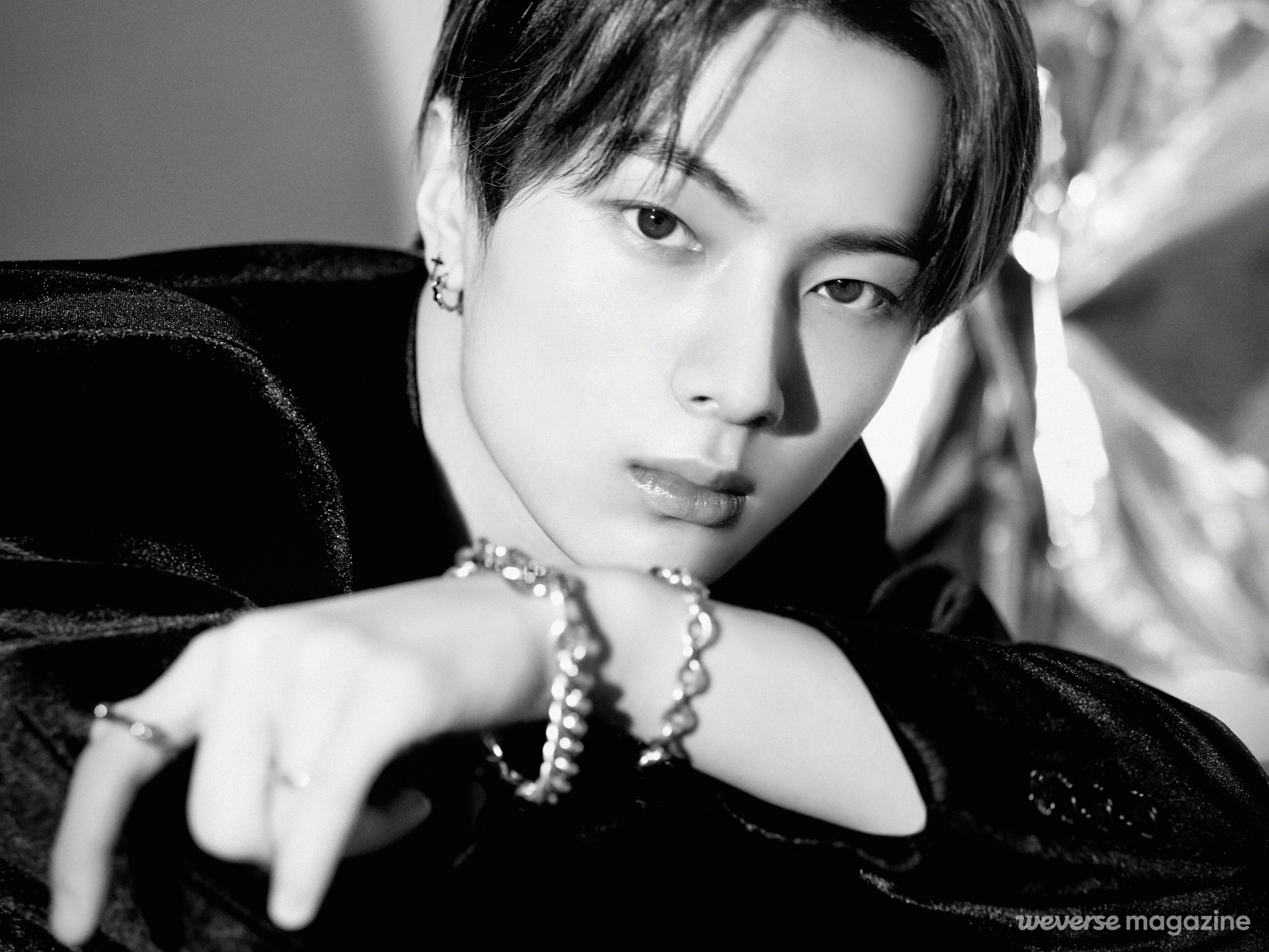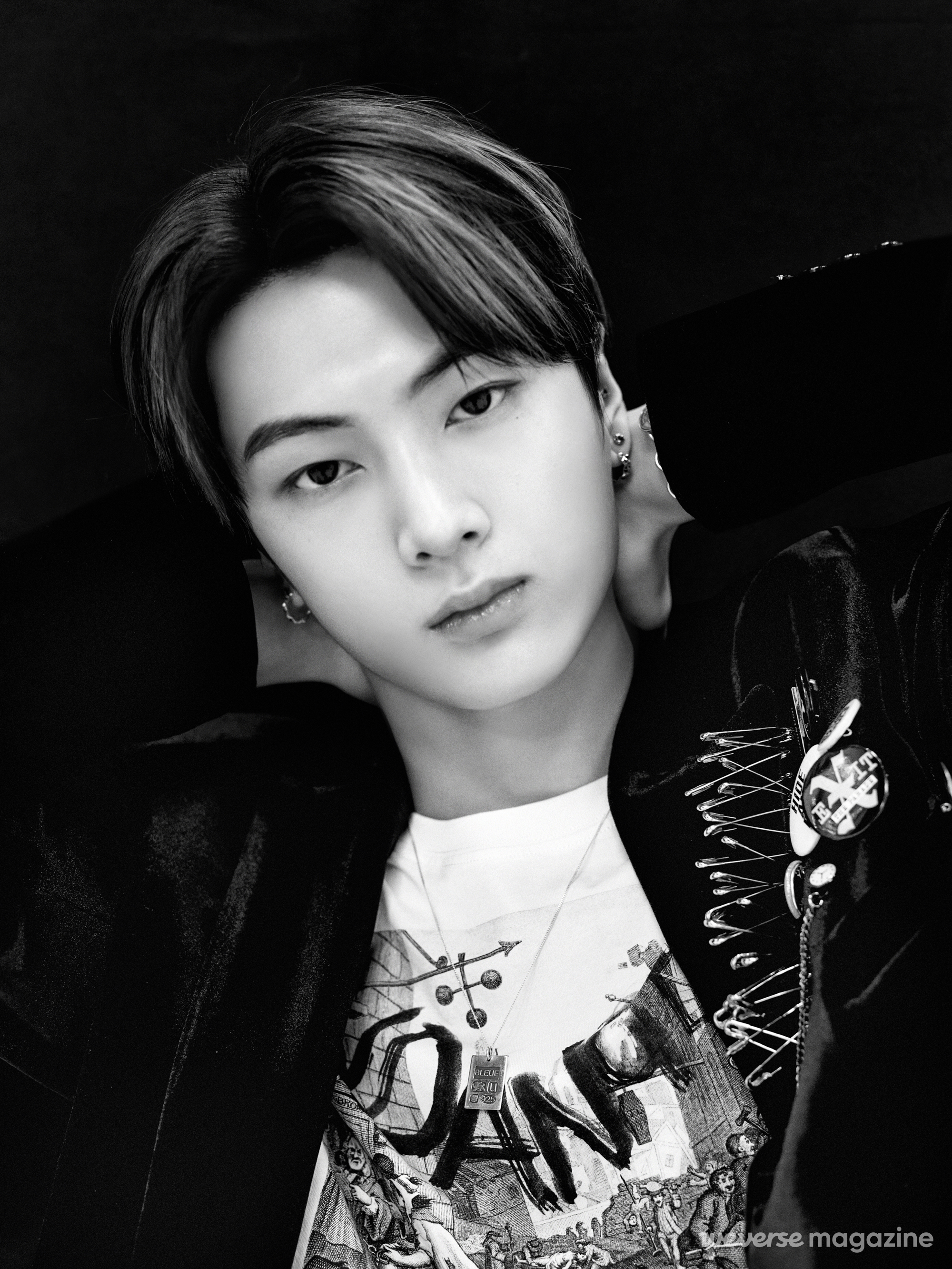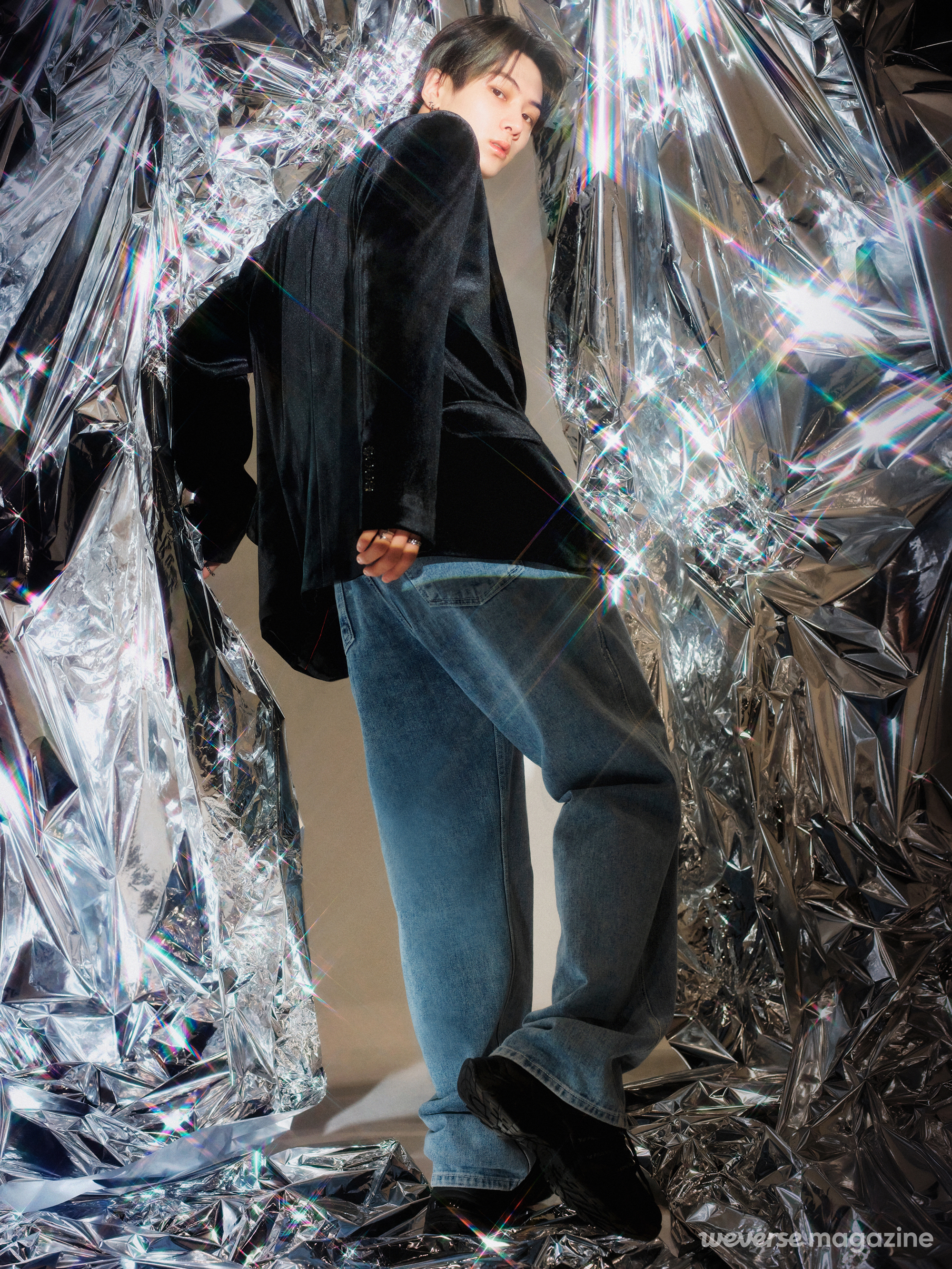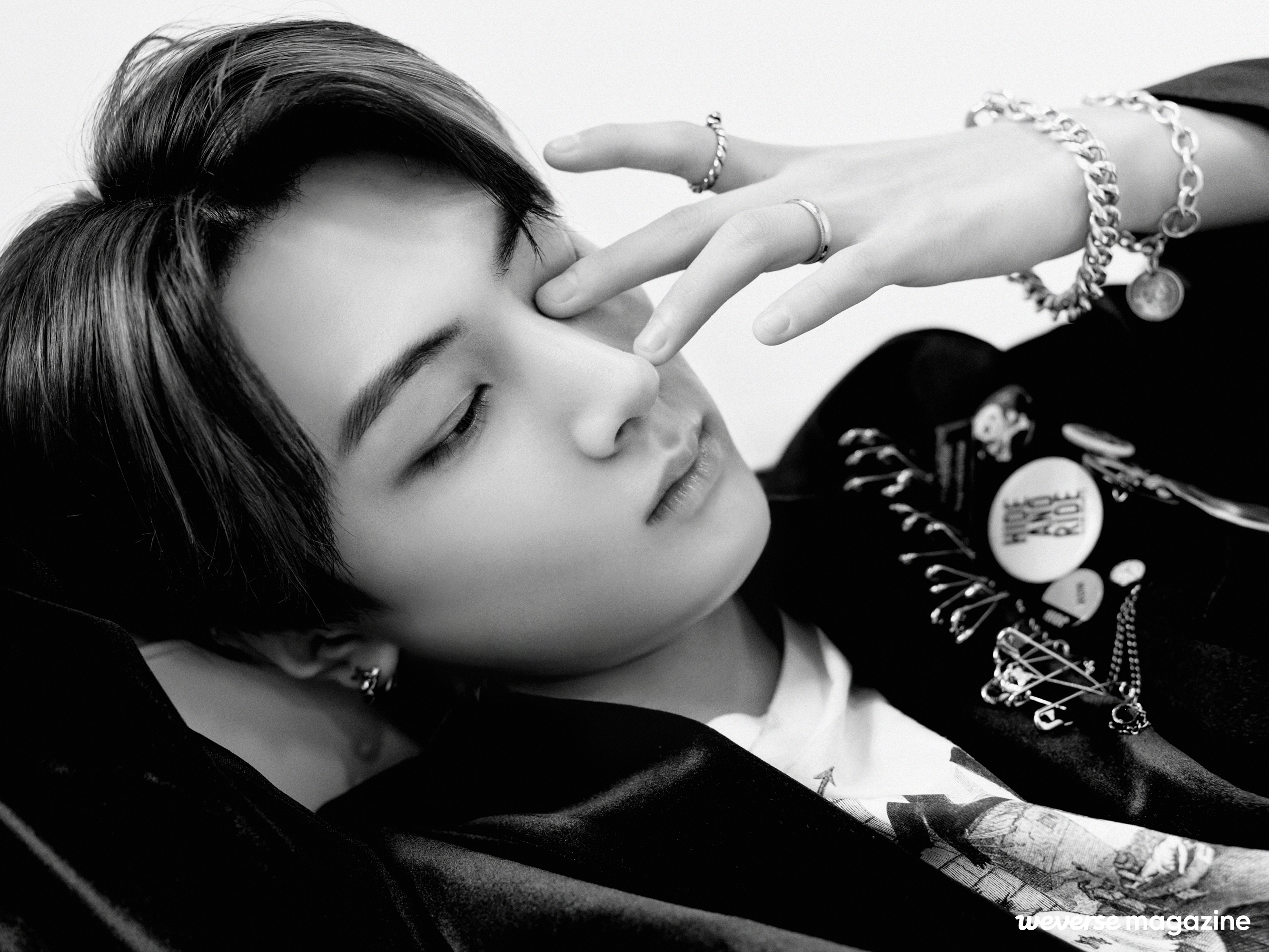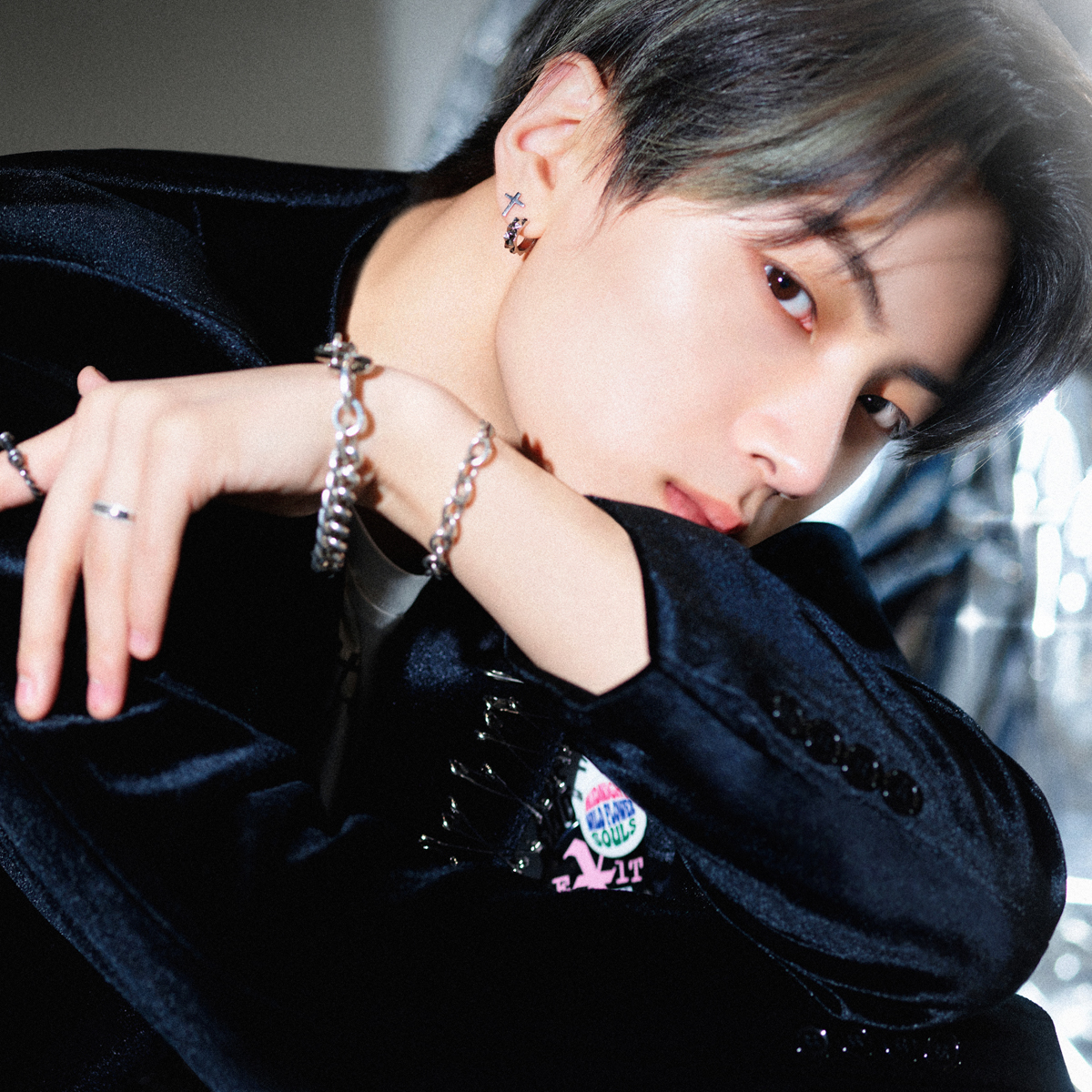
JAY is, in his words, someone with “a lot of thoughts and concerns.” When he’s asked a question, he gives answers that make it clear he’s already given the topics a lot of thought before. Yet he’s hesitant to share his concerns with others, worried he might weigh them down. When I asked JAY to tell me something that’s been on his mind lately, he thought carefully and responded, “The end of COVID-19.”
Are you still cooking a lot these days? One of your nicknames is Chef Jjong.
JAY: I think I was able to take care of my breakfast and lunch when we were on hiatus at least. These days I usually [ust cook myself buchujeon or fried rice as a late dinner.
So when you eat late you eat healthy Korean food.
JAY: I think I should to cook for myself at least then, since I started to eat delivery food every day now that I live apart from my parents. Many times I ask the other members if they want to eat together, but most of them don’t like healthy food (laughs) so I mostly eat with JUNGWON.
I gather you have a lot of different interests in addition to your well-known love of fashion and cooking. There are several paintings hanging in the background of the childhood photo you posted on Weverse on November 20.
JAY: I remembered there was a photo of me as a kid wearing a similar outfit to the one I was wearing the day so I posted it. I remember that I took lessons at an art academy for about two years starting from first grade. I don’t think I was very good but there was an art exhibit every year. That’s when that photo was taken.
Are you still interested in art?
JAY: I’ve always been interested. But I figured out I have no natural talent for it, so I wouldn’t consider doing it professionally—but I’m always interested. I went to a lot of exhibitions when I was in middle school because one of my friends’ parents was a painter. I was really into Vincent van Gogh at the time so I revisited his works a lot. The color scheme or something relaxed me and I really liked how I could space out and stare at them.
On SUNOO’s Curiosity Research Center you said that, starting when you were young, anytime there’s something you’re curious about, you watch a YouTube video about it for a detailed explanation, and thanks to that you’ve become the walking encyclopedia of the group. What do you usually watch these days?
JAY: It hasn’t changed—even now, if I’m curious about something that pops into my head, I watch something right away. There’s no specific reason for it. Once I was just walking down the street and noticed some traditional Indian clothes on display, so I immediately looked up about Indian history. I always look up ancient history, myths, time travel, alien stories and so on any time I’m curious. For religious and mythical videos, I watch a channel called WaBill a lot. There’s also a channel that uses cute cat drawings called PyaPyaKim History that I recommend for history info.
There’s a lot things in life you’re curious about. It reminds me of the voiceover you did with JAKE and HEESEUNG on “Interlude: Question.” It felt like an aside given by a teen in a play plagued by concerns.
JAY: It wasn’t an easy feeling to convey. Interlude-like songs have to express everything in the songs up to that point or that come after it 100%, and the concept behind the album was more complicated and more difficult to express than I expected, so I really focused on that. I thought I should be rebellious instead of obediently following something and that I needed to show many different emotions because it contained some personal thoughts. I think the single “Blessed-Cursed” in particular is meant to express criticism about the world, a denial of reality and a willingness to follow through on your ideas. I was trying to demonstrate those kinds of aggressive and rough traits as well as convey a variety of feelings, like disappointment and anger toward the world, an unshakable determination and confidence.
It couldn’t have been easy expressing the complex emotions found in “Blessed-Cursed.”
JAY: It had the most difficult concepts of any song from any of our albums so far, but I think the emotions needed to portray them are the simplest. “Given-Taken” is about wandering and anxiety, “Drunk-Dazed” shows someone sort of intoxicated and feeling different from their usual self, “Tamed-Dashed” is about putting actions before words—a lot of abstract concepts like that. However, “Blessed-Cursed” is basically a rebellious song, so I aimed to give the feeling of trying to break free. I think the song was simpler than I expected when it comes to expressing its meaning.
You seem to personally analyze things and prepare thoroughly before you try and express something.
JAY: For this one, I looked up various things that capture aggressive tendencies. I’m not sure I could recommend any of them because they’re pretty violent (laughs) but I used some Tom Hardy movies and characters in different noir works as reference points.
Were those images you developed reflected in the recording process for “Blessed-Cursed”?
JAY: The song largely sounds like it’s continuously driving forward. It's very bold like that. I thought people should be able to pick up on an energy that seems to bust through the speakers to reach your ears when you listen. For me, I wouldn’t say I changed my vocalization method for this song—more like, in other songs, I usually held myself back a little. While I had maintained the same adequate energy levels before, this time I sang with all my might because the song called for a lot of energy. It was fine to give it my all.
The performance is very dynamic, too. And the formations are complicated.
JAY: “Blessed-Cursed” is a good song, but I’m especially confident about the performance. It makes use of fancy camerawork and we used unusual compositions we never did before, like some of us leaving and coming back in or running in from somewhere else, so it took a long time to match up and learn the formations and composition. As far as the dance goes, if we go hard from start to finish, there’s a good chance the viewer will feel it’s really flat and boring if there’s no highs and lows. So in order to have a strong impact, we have to give 100 or 200% only when necessary and adjust the pacing to settle things down for the other parts. By doing that, the parts that stand out to viewers are far more impactful and they can get the overall feeling of the song, so I practiced a lot so I could give as much strength as possible when needed and loosen up when I needed to, too.
I got the sense of a carefree rock star from you when you stood in the center and played air guitar.
JAY: The mood builds up from the intro, and then the music transposes at that part, so I wanted it to feel like something’s about to happen. Before that, I restrain myself and just convey the mood a little, and then I throw in some emphasis to start the song. I usually plan the way the performance will unfold while recording the vocals. It’s hard to discern what’s good, but it’s easy to discern what’s bad. If it sounds boring and like it’s not working to us, then the listeners will naturally think the same thing, so I made little changes while recording or dancing. That’s my process when I develop a performance.
In “Polaroid Love,” you embody a boy who denies his feelings but gradually comes to accept them. There’s two parts—where you sing, “Why am I hanging onto love? / It’s the same obvious feeling,” and in the chorus: “There’s not even a trendy filter, but I love that vibe”—that are both you but sound like different people.
JAY: I tried to convey a progression in which a boy who doesn’t understand or have any interest in being in love slowly acknowledges his feelings, seeing he feels different from normal. Because it’s the kind of song where the meaning is really important, I think I interpreted it through somewhat monotone vocals rather than trying to make them elaborate.
In EN-O’CLOCK, you quietly took on the hard work of cutting up a watermelon and setting up a tent yourself. You also shot yourself in the hand with your BB gun to check it before you shot JUNGWON. Perhaps that kind of consideration is one way of expressing yourself?
JAY: I think I do it out of habit without consciously thinking about it. Sometimes, when I’m reviewing footage and see someone praising me for that, I’ve often thought, I did that? My body just moved automatically because I happened to notice something or thought I should do it.
I heard your consideration extends to you always including mint chocolate in your ice cream orders in case SUNOO’s going to eat some. Do any of the other members come with a special manual?
JAY: There’s lots of things. For one thing, asking SUNGHOON first any time we all need to choose something, since he takes the longest to decide. JUNGWON is the kind of person who changes his mind after saying he’s not going to eat, so when I’m in charge of ordering food, I usually order something for him too, just to be safe. JAKE can’t not do something once he thinks about it, so I feel like I don’t have to worry about him that much. HEESEUNG can’t be bothered with anything complicated, and NI-KI can be a little careless sometimes, so I make sure he doesn’t handle anything dangerous yet.
Parts of the “Tamed-Dashed” music video and performances are based on American football. Would you say you play defense for the team?
JAY: Well, if someone passes me the ball, I'm always ready to run like crazy and score a touchdown. I prefer to manage plans and situations by myself as much as possible. I have to follow someone else’s plan in some cases, but I like to do things the way I planned them where possible.
I guess you’re probably not fond of uncertain situations, like in “Go Big or Go Home.”
JAY: I think more and more effort is required of people now to prove their worth to the world than before if they want to receive recognition. People’s standards are bound to increase as time goes by, so I think it’s just reality for young people today that they get anything from the world unless they “Go Big or Go Home” and bet everything.
Have your beliefs ever been shaken because of the reality of a situation? Did you have to make a compromise?
JAY: There’s definitely been times. I think equality and trust are important. So no matter how close I am with someone, I should tell them when something isn’t right, and even if there’s someone I don’t like, I have to be able to acknowledge when they’ve done a good job at something. I think that’s part of the responsibility of being human. But I’ve had to compromise somewhat when there’s been a problem I couldn’t solve right away on my own, even if I think every single day about how it’s not right, or when situations that can’t be helped arise.
What do you do when you can’t solve a problem?
JAY: When something’s bothering me, I think talking with the other members or with friends is usually a big help toward resolving it. I don’t want to worry my family so I don’t think I really talk with them about those kinds of things much. My friends can relate to my concerns because I could talk to any one of them and they probably have the same ones. No matter what kind of issue I bring up, their number of worries won’t increase. I think that’s why we’re able to talk so comfortably with each other. JAKE has worries too, for example, and I’m the type of person who looks at worries rationally as we talk, while he is warm and sympathetic. We express ourselves differently, but we have similar thoughts, so we can sympathize with each other a lot of the time.
What sort of things are you concerned about these days?
JAY: Global health, disease prevention, the end of the pandemic, meeting people in person—things like that.
You must have been filled with new emotions when you saw ENGENE at the in-person fan meeting concert, EN-CONNECT: COMPANION.
JAY: Being an in-person performance, it meant everything was absolutely overflowing with energy and I felt proud of the performance we put on. I could sense the audience’s energy the whole time even though they couldn’t cheer for us. Seeing their reactions and feelings in real time put me at ease and made it enjoyable to perform.
You addressed ENGENE in English at the 2021 Mnet Asian Music Awards, saying, “our every single moment is shining and it’s all because of you guys. Thank you.”
JAY: I guess I used many different figures of speech because I wanted to convey a lot of individual emotions in a short speech. I felt grateful, more than anything, and I said the people who are always by our side supporting and growing with us are the reason we perform. I think what I said was that I hope everyone in the world makes it through these hard times and can come see us when things are better, and that every single moment is like a ray of sunshine for us thanks to them.
In the “To Myself 1 Year From Now From. 2020” video, you said that, back then, “nothing was certain, but now I believe I’m leading a happy and meaningful life as an artist with our ENGENE.” What does it mean to you to lead a meaningful life as an artist?
JAY: I think it’s a life with few worries, and many questions to answer. To myself one year from now … I’d be curious if my worries and decisions have mostly been taken care of by then.
The title of your latest album is DIMENSION: ANSWER. What has been the answer to resolving the many decisions you’ve had to make leading up to this album?
JAY: I’m always trying to keep an open mind. Don’t try to look for just one right answer; try to keep an open mind. That’s what I’ve been thinking lately, and that’s one of the answers I came up with. If I do that, I can see more and gain more.
Unauthorized reproduction and distribution prohibited.
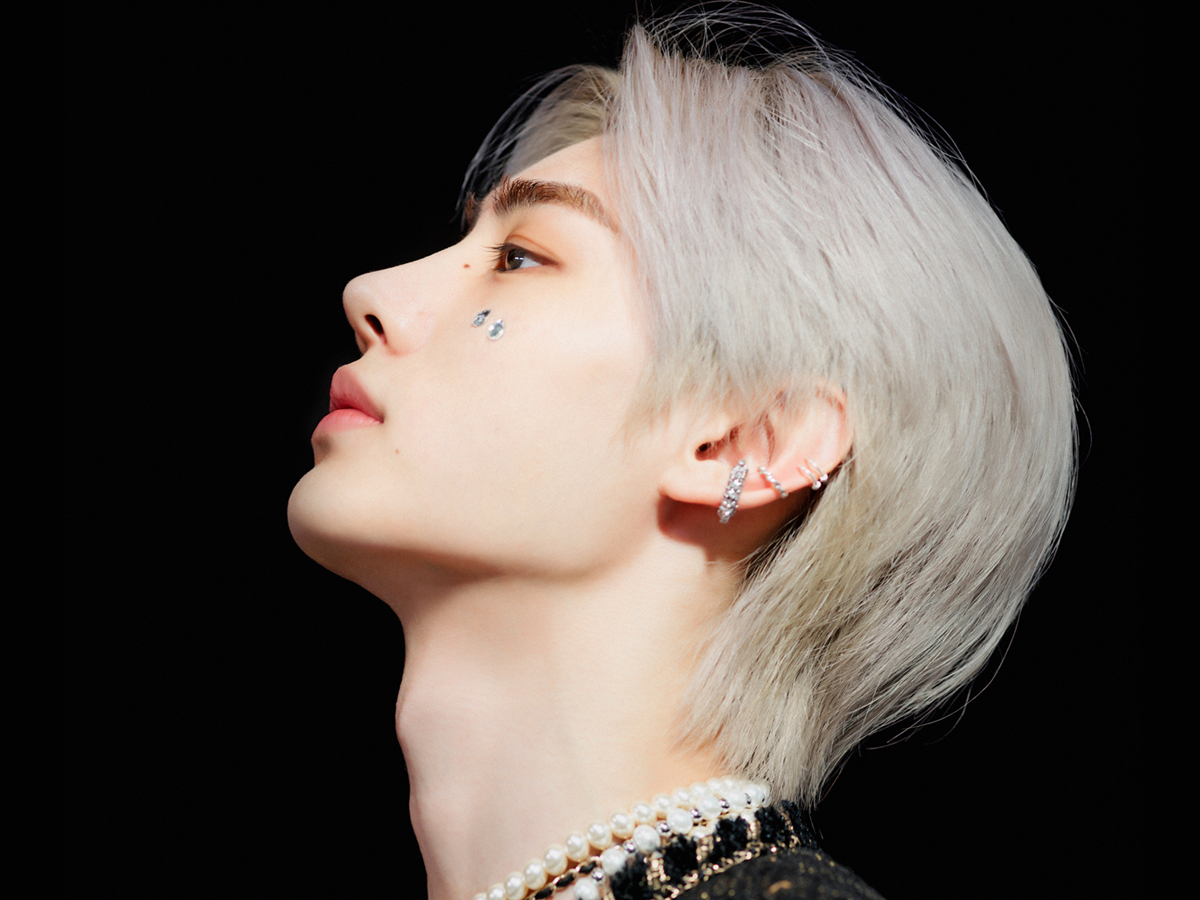
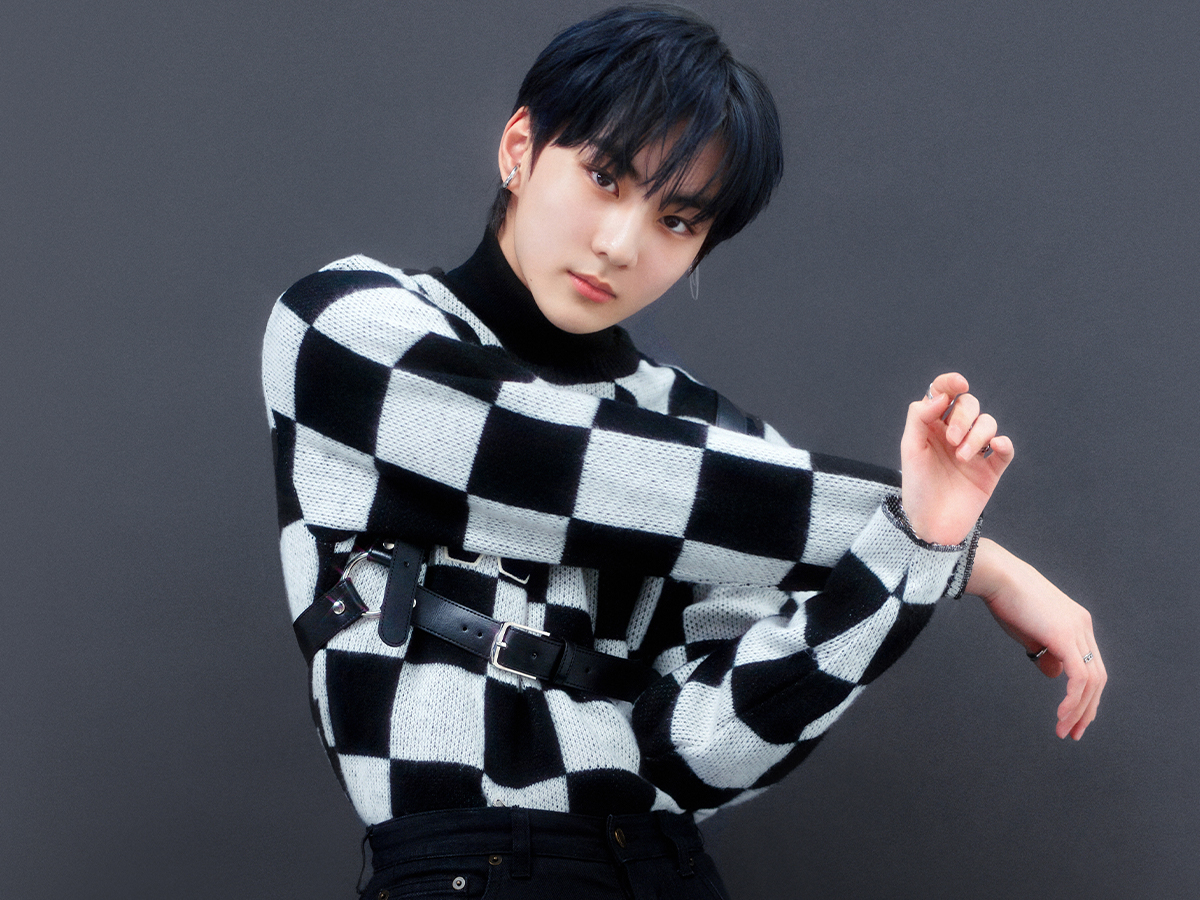
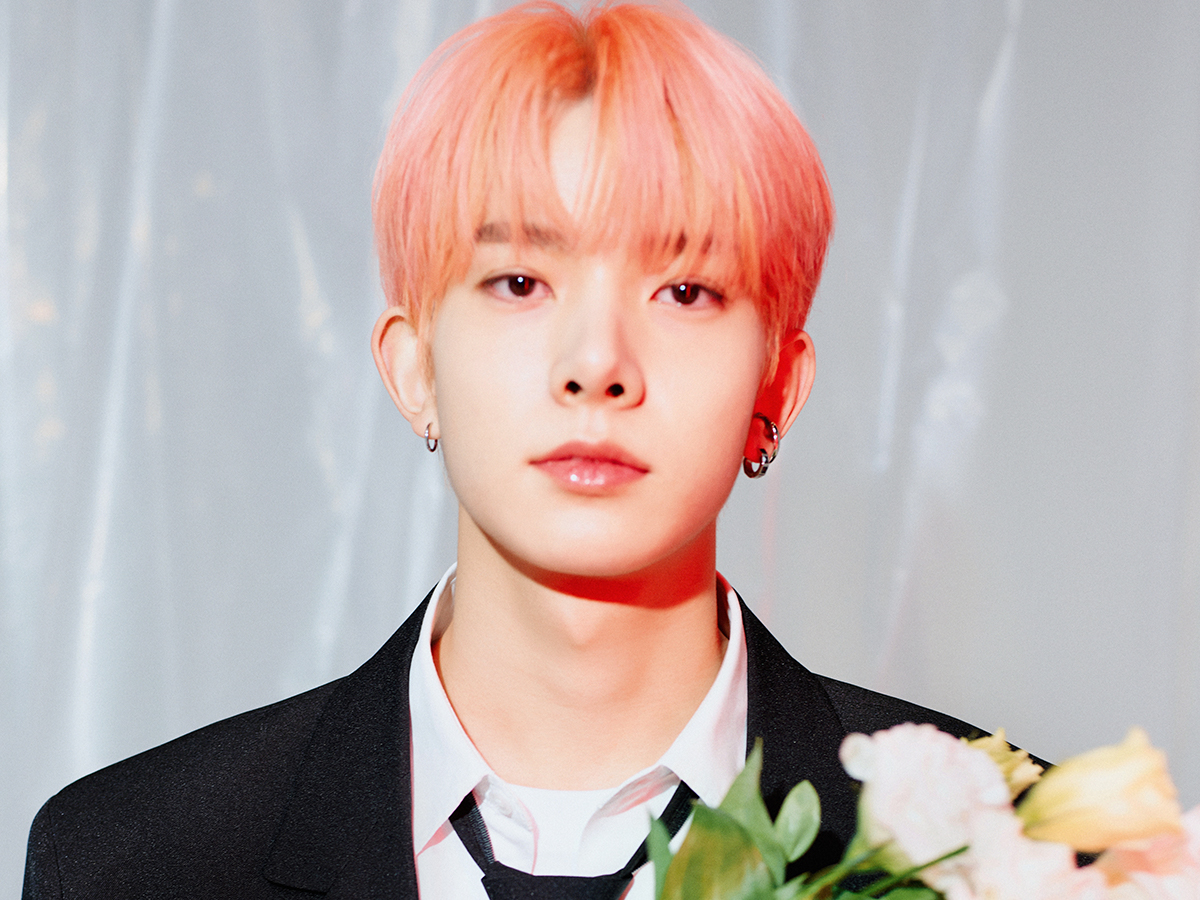
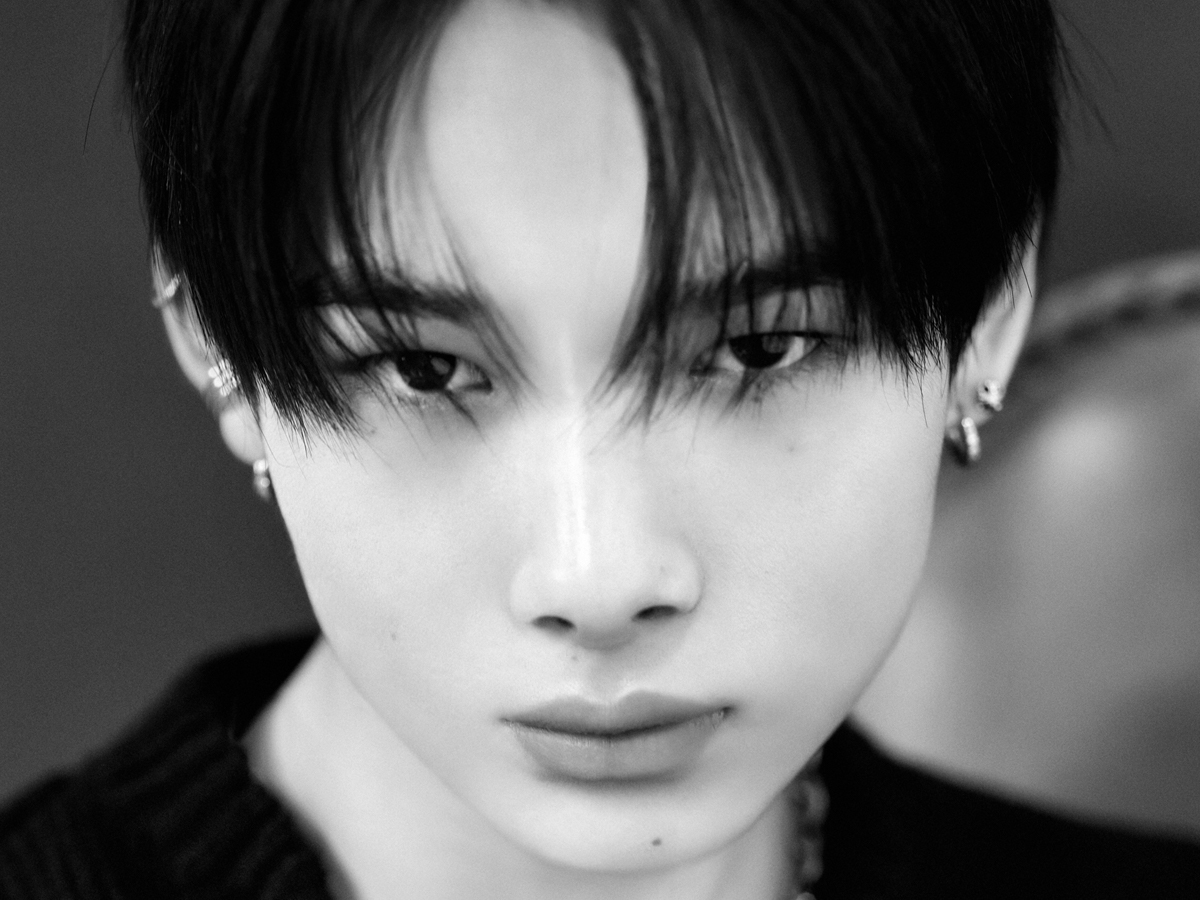
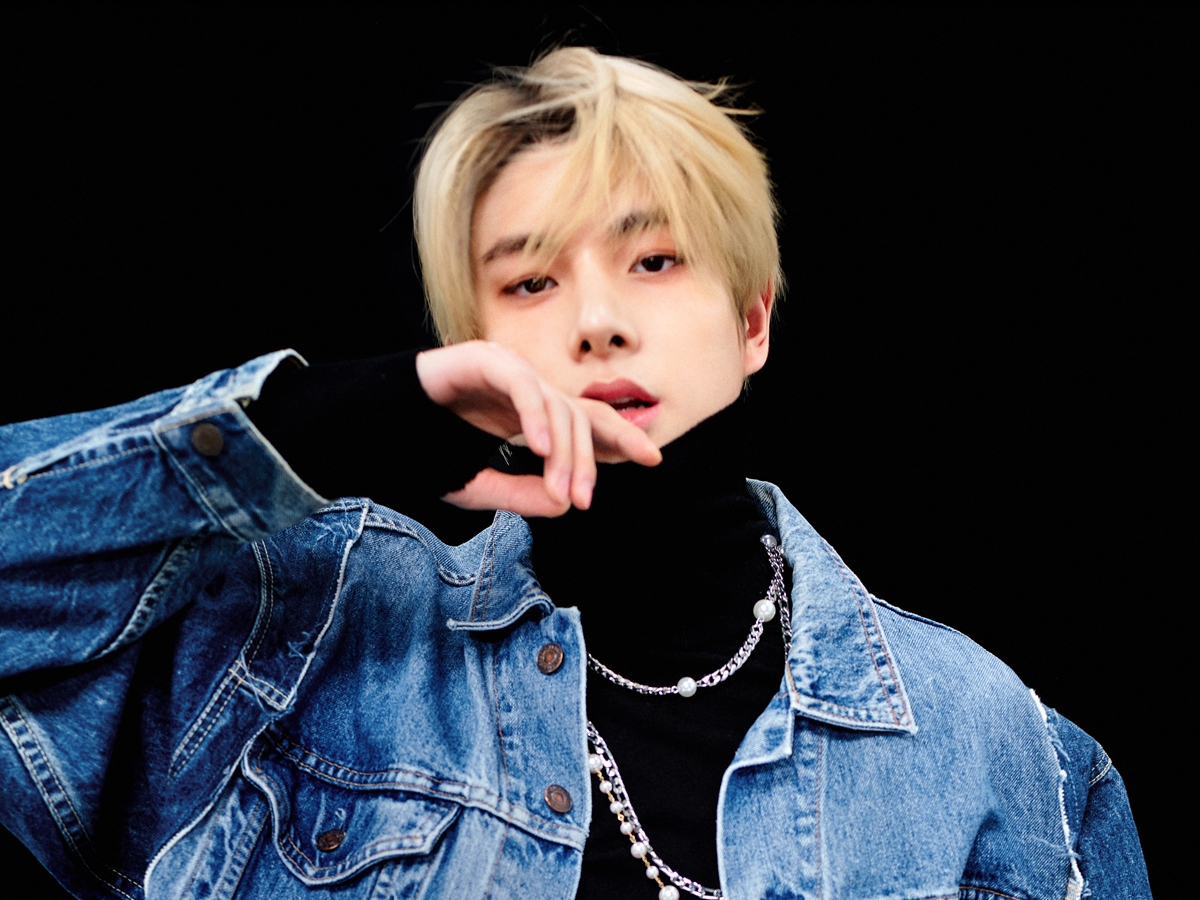
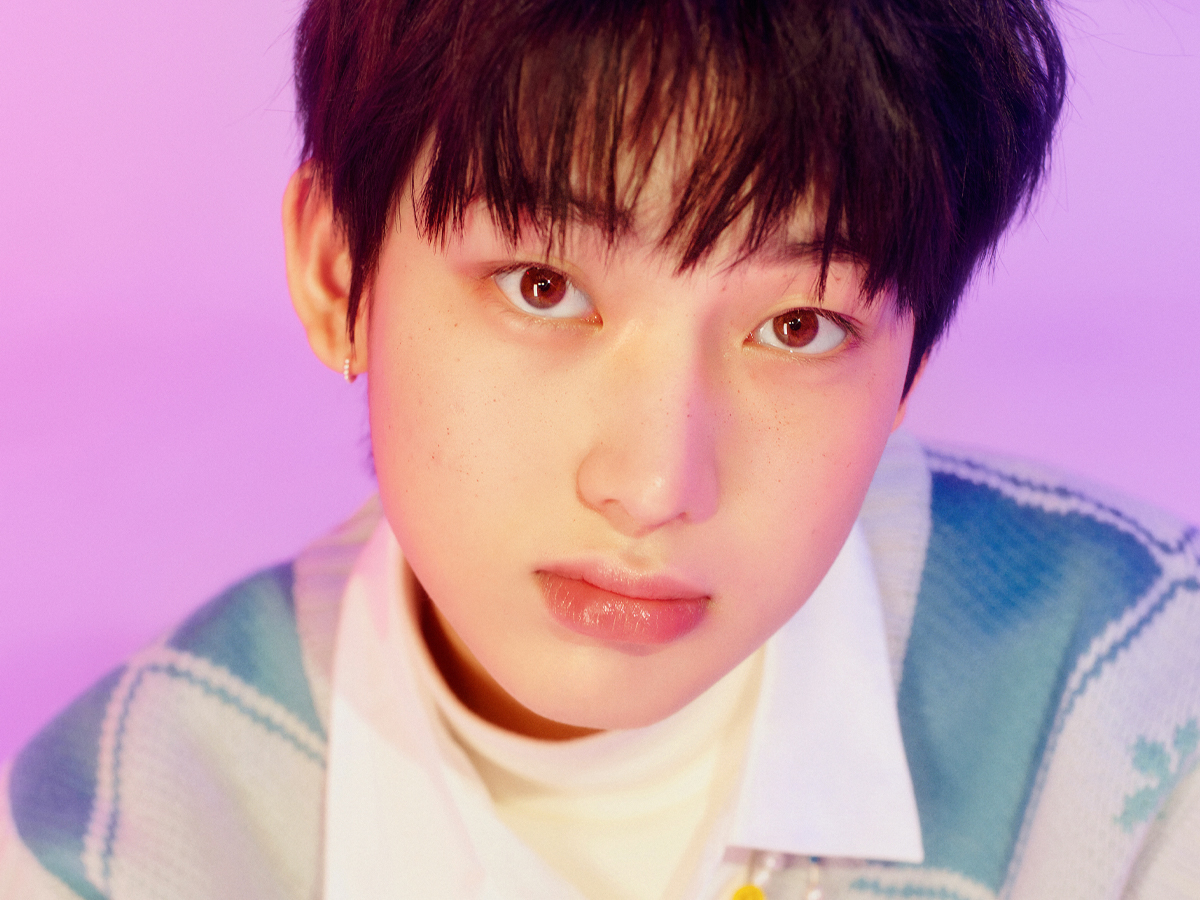
- ENHYPEN Other Cuts2022.01.23
